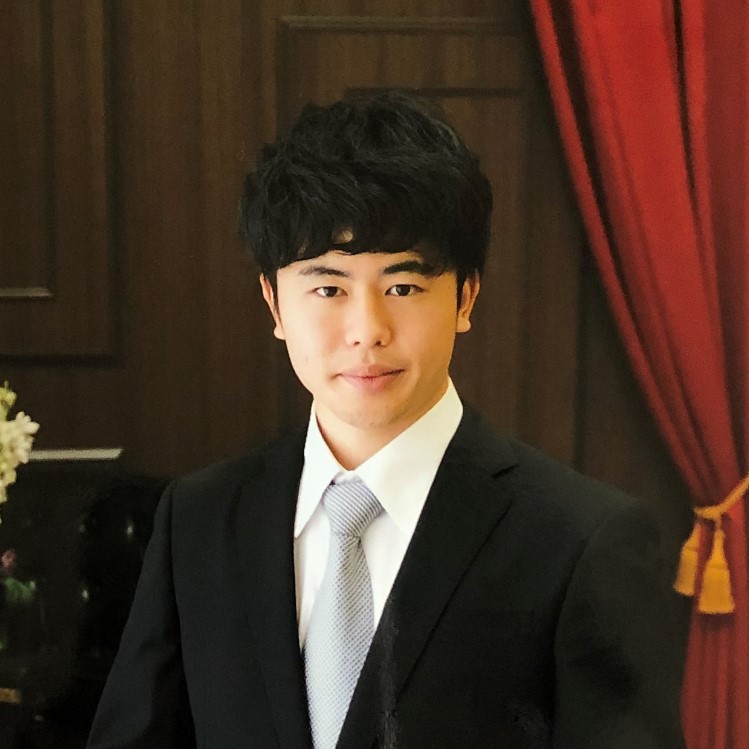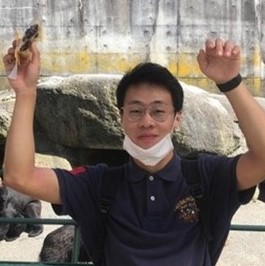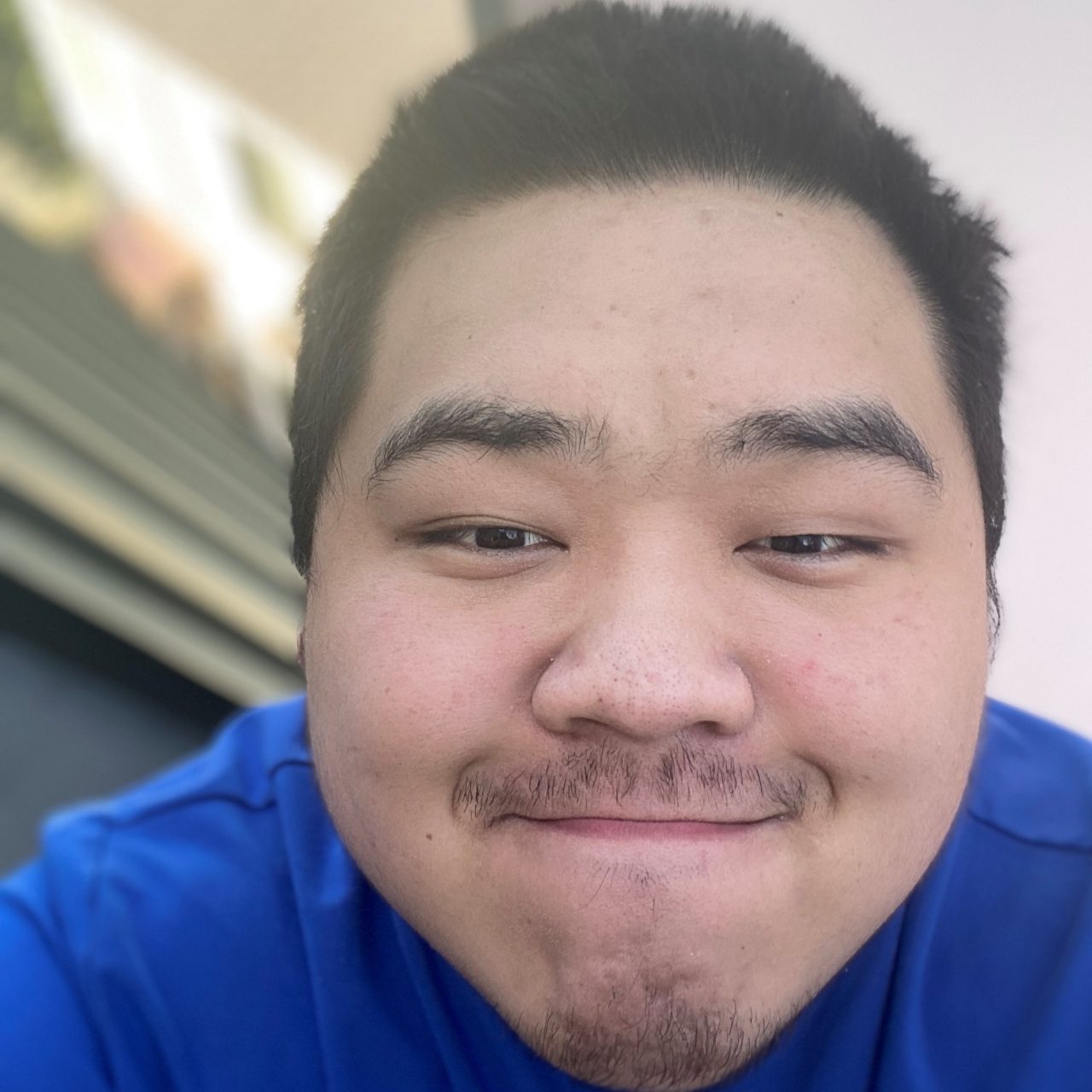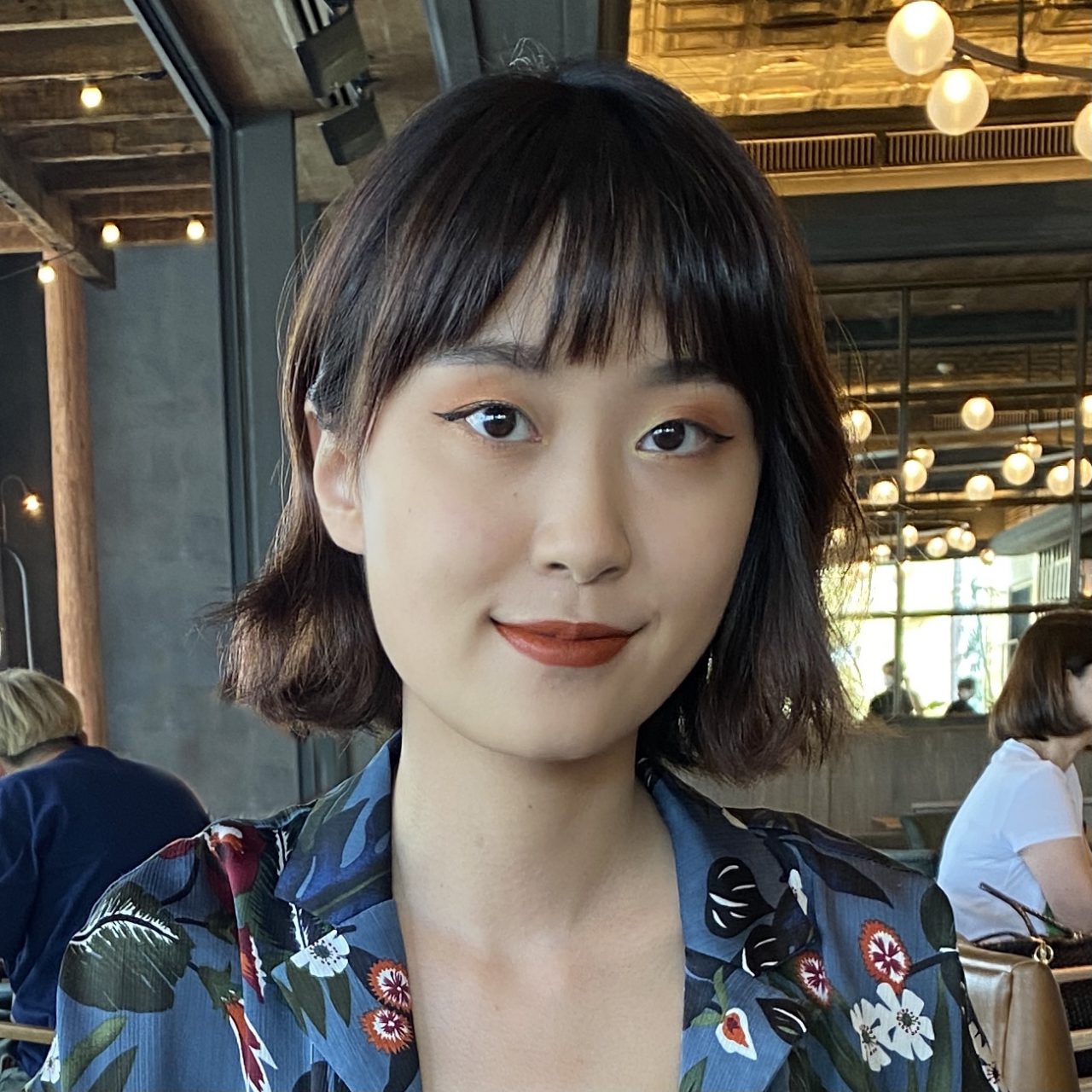-

KUMAKI Yusuke
The East Asian Academy for New Liberal Arts (EAA) is, as the word “Academy” indicates, a community where teachers and students think and practice together based on a variety of texts and their knowledge. Thus, in addition to the lectures given by teachers, there are discussions among teachers and classmates during the classes. Furthermore, EAA classes, with their focus on East Asian studies, invite teachers from a variety of academic fields and welcome EAA YOUTH members from different departments. Take compulsory East Asian Liberal Arts classes for example—the class in the A-semester, 2020, focused on East Asian modern literature, while the one in the S-semester, 2021, covered environmental protection and sustainable development. Having interdisciplinary discussions with teachers from both inside and outside the EAA and students from different backgrounds is a very precious opportunity.
One characteristic of the EAA is that the program is held in three languages: English, Japanese, and Mandarin. In academia, what thoughts and opinions you express through language matters more than just your language skills, and in this sense the ability to use three languages itself does not necessarily make us intelligent. Then, why is the EAA multilingual? I guess that is partly because these three languages can be strong weapons for doing East Asian studies in Japan. The EAA has the environment for you to learn and send out something beyond the language barrier and confines of education in Japan. I am sure that this environment is comfortable not only for those who speak both Japanese and Mandarin as their mother tongue but also for the ones who started learning Japanese or Mandarin at the university. Whatever opinion you have towards any event or problem, your opinion should be based on various information sources, knowledge, and experience. The multilingual environment offered by the EAA helps you widen your view and ways of thinking, which makes the EAA even more special.
-

YANG Xiaolong
EAA is an encouraging, supporting, and comfortable environment for any students to do unique things. In my own experience hosting a cross-institutional seminar with Prof. Thang from NUS, Prof. Ishii, and Dr. Koo not only permitted my proposal but also generously contributed lots of their time and effort to help with the organisation. This place truly cares about the holistic growth of each student’s intellectual prowess, that means to learn from both text and practice so you should always feel brave enough to make impacts in any shape or form here at EAA.
your new research findings and musings. Trust me, there are usually a ton of helpful, sceptical’,
EAA is also an intimate community that shares bountiful academic resources. As an EAA-Youth, you will be asked to join our monthly noon-meeting/ ‘storytelling booth’ for you to be updated on recent activities in the institute, and if you are willing, this is also a great stage for you to flex some muscles about and sometimes harsh (in a good way of course) comments, and you are the biggest beneficiary going through this process. Your peers here are also interested in different topics, humanitarian law, milirarised conflicts, applied game theory, development, political philosophy, Medieval Chinese literature, and the list goes on. You also have chance to interact with PKU students to expand your horizons, or if you desire, actually studying in the best university in China for a semester (with scholarship) is never an impossibility. These are the wonderful resources this only-two-year-old institute provides for our undergraduate students and the synergistic merit manifested out of learning from peers, researchers and professors of uniquely different backgrounds constantly makes everyone of us a better person.
Speaking of the core values. Since one vital mission for EAA is to imagine academia in 30 years’ time, there are no institutional push-backs for you to be innovative and even ‘rebellious’ in pursuing the methodology and substantive topics that interest you the most. Despite EAA’s rich resources in humanities, it also encourages students to pursue along different directions. I am personally crazy about quantitative and computational political science and there are always people and professors that I can go up to for a good petit conversation, I even presented about Prof. Imai’s Quantitative Social Science: An Introduction (2017) to my peers and professors and debated about research design in a randomised control experiment. In my view, these interactions prove EAA to be an interdisciplinary and open environment for you to explore your own definition of the new liberal arts.
-

XU Minghao
When I was still in high school, I came across an essay question that asked me to elaborate on the difference between “knowledge” and “knowing.” If I were to write on the prompt now, I would have no idea how to approach it, both because there is so much to say and because nothing really suffices. Looking back, I am amazed at the hubris I had at the time to just smash dab in the middle of such a profound question without a care in the world. I feel years of rigorous academic training has to some extent made me a little too timid to grapple with such questions, knowing the multitudes they contain and intimidated by my own limitations in reaching an answer that I would find satisfactory. Yet being part of EAA has somehow taken me back to the more naïve but a lot more courageous version of me. I remember the first seeing this year’s topic— value and value-ing—I was like, “how are we supposed to handle a topic this broad?” With the pressure of giving a twenty-minute presentation with my group, the task seemed even more daunting. Yet somehow that also pushed me to think outside of the rigidity of my training and to confront it as a person, with all the flaws and biases that any human being possesses. There is something magical about that audacity to approach something so profound with so much of “me,” so much of not knowing. I have always been fascinated by the way Sato-sensei calls herself nazonazo-seijin, a native from the planet of puzzles and mysteries. By nature, a mystery is a state of not knowing, yet the excitement that exuberates from her utterance of the phrase and beyond is infectious and exhilarating. Knowledge seems to hint at something finite, fixed, the end of the journey. Yet knowing, or not-knowing to be precise, takes you on a journey of infinite possibilities waiting over the yonder. The hours-long conversations, the blood pressure surging debates, the uphill climbs of reading arcane writings, the desperation to make sense of yourself when words fail…I embrace all of these and what I know I do not know will transpire. I embrace the part of me that is also a nazonazo-seijin.
-

QING Xin
EAA is not just a program on East Asian history, politics, arts, literature, or society. Rather, under the overarching theme “envision the academy and the disciplines in 30 years,” this program requires students to bring their academic interests and concerns with various societal issues to the class and to always think of the ways through which ongoing discussions could have lasting influence on both the discipline of East Asian Studies and East Asian societies per se. We are required to read academic works from authors with various fields of expertise, who would also be invited to the seminars to deliver a guest speech and steer the in-class discussion. It is a great opportunity to re-examine one’s understanding of East Asia through multidimensional and usually new analytic frameworks and theories. For instance, joining the class with little knowledge in quantitative studies, I found the introductory lecture to environmental governance in East Asia very informative as it showcased how raw data of different environmental indicators were collected, modeled, and hence interpreted for policy making.
Moreover, EAA is a program that values diversity and criticism. In most of the lectures, Japanese, English, and Mandarin are permitted, and our assigned readings are also written in one of the three languages. Students coming from different countries and departments, with different level of language proficiency and academic interests, all come to contribute to the class discussion with their unique perspectives while understanding and respecting each other’s differences. Apart from lectures provided by the faculty, students can also run their own book club, forum, and other gatherings to exchange opinions about a specific work or certain ongoing issues they noticed.






